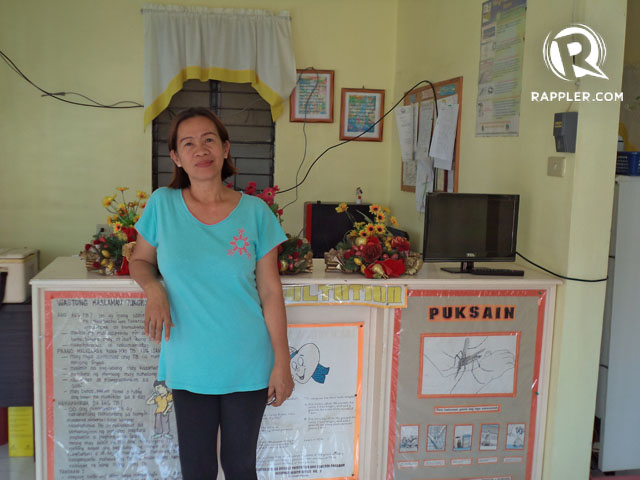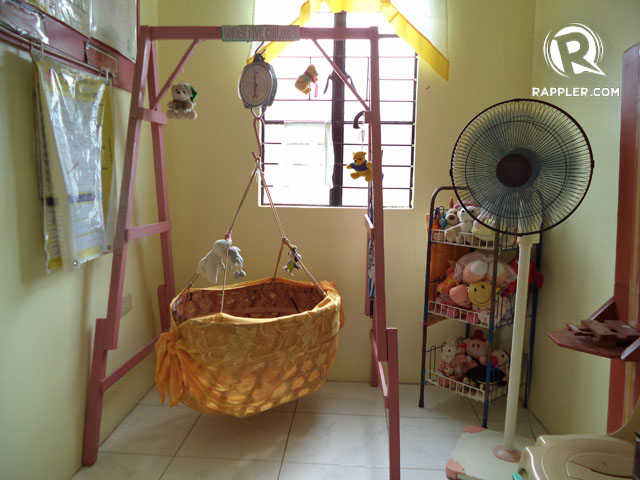SUMMARY
This is AI generated summarization, which may have errors. For context, always refer to the full article.

MANILA, Philippines – The year was 1984 and Lita was in her late 20s. She washed other people’s laundry on weekends, and was a full-time volunteer on weekdays, except on Wednesdays when she worked as a nanny.
Lita is now 56 years old and still a volunteer barangay (village) health worker (BHW). She currently receives P2,750 a month, a vast improvement from her first 14 years of service when she received nothing at all.
She is from Region III, but opted not to mention the specific barangay. “I don’t want to cause any trouble for anynone,” she said.
While she began her volunteer work in 1984, it wasn’t until 1998 when Lita started receiving a P1,000-monthly honorarium from the municipal government. (The amount has since increased to P1,750.)
In 2001, Lita began receiving a monthly honorarium of P600 from the barangay, which increased to P1,000 in 2003, and may be further raised to P1,500 in 2014.
Since 2007, Lita has also been receiving a sack of rice every 4 months.
The allowance BHWs receive is rather small considering the tremendous role they play in providing health care services to the public, especially among poor families.
Barangay health workers
BHWs undergo training programs under accredited government and non-governmental organizations. They are accredited by the local health board in accordance with the guidelines set by the Department of Health (DOH).
BHWs voluntarily act as health educators, community organizers, and primary health care providers in their local communities. Primary health care is participatory and focuses on empowering the community and making people capable of helping themselves.
BHWs are also in the frontline of providing maternal, newborn and child health care. (READ: Hungry and pregnant in the PH)
The Department of the Interior and Local Government (DILG) reports that there are 42,028 barangays in the country as of 2013. Each municipality is supposed to maintain a health center and a barangay health center for each of its barangays.
According to the latest statistics available from the DOH, there are 196,562 BHWs as of 2009.
Life of a volunteer
Lita, one of the first BHWs in her barangay, has been a volunteer BHW for nearly 30 years.
Before becoming a BHW, Lita was a stay at home mother to her 3 children, while her husband worked in Saudi Arabia.
In 1983, Lita’s husband permanently returned to the Philippines, and stayed at home and took care of the household chores. It was during this time that Lita started working as a laundrywoman and a nanny. “Para naman may pambili kami ng pagkain (So that we’ll have money to buy food),” Lita quipped. (READ: Why many of the hungry are women)
Lita welcomed 1984 with an awakened passion for volunteerism.
Lita recalls the 1980s with much elation. “Nagpapaanak kami nang wala man lang binibigay sa amin, ni singko man lang. Ang bayad sa amin isang piling ng saging,” Lita said. (We assisted women giving birth and we didn’t get paid, not even five cents. They paid us with a bunch of bananas.)

Before birthing clinics were established, Lita traveled across remote areas, together with a volunteer midwife, to assist women in giving birth.
At present, Lita supports her child and two grandchildren. When asked how she managed to support her family, Lita said she didn’t know herself. “Di ko nga alam. Sa totoo lang. Utang, bayad.” (I really don’t know. Honestly, I borrow money then I pay afterwards.)
Despite her own financial woes, Lita sometimes even lends money to the people she’s assisting, for their transportation fare, diapers, or food.
There are only 5 volunteers in Lita’s barangay health center. Ideally, each BHW is assigned to 50 households but since there are not enough volunteers, each BHW is assigned to 500 households.
“Tulong-tulong kaming volunteers, para mapadali ang trabaho (Volunteers help each other to make our job easier),” Lita said, in explaining how they managed to overcome a dengue outbreak with so few of them around.
On quitting
In 2006, Lita’s husband had a stroke and eventually became bedridden. Due to her husband’s condition, Lita was unable to fulfill her volunteer duties full time. Her husband’s savings from his overseas work were all spent on hospital bills.
“May pambili ako ng diapers, wala ako pambili ng ulam,” Lita recalled. (I can buy diapers, but I can’t buy food.)
When her husband passed away in 2010, Lita went back to volunteering as a BHW.
Lita was deep in debt, but she never traded her passion for a higher-paying job, “Kung minsan, naiisip ko rin. Pero ‘yung ‘pag nakatulong ka, nakapagpaanak ka sa pamilya. Kahit walang kapalit, masarap. Kaya ‘di talaga ako umalis.” (Sometimes I’ve thought of quitting. But when I help families and help women give birth, even if I get nothing in return, it feels great. That’s why I’ve never quit.)
Laws supporting BHWs
Republic Act 7883 or the Barangay Health Workers Benefits and Incentives Acts of 1995 promotes the rights of BHWs.
The law entitles BHWs to hazard and subsistence allowance, training programs, Civil Service eligibility, free legal services, and access to loan services.
However, there is no fixed rate for the allowance BHWs receive. Local government units (LGUs) vary in the rates and benefits they provide BHWs.
Given the overworked yet underpaid nature of a BHW’s service, there are many proposals to improve their working conditions.
House Bill 3123, filed by Marikina City 2nd district Representative Romero Quimbo aims to set a fixed P4,000 monthly honorarium for BHWs.
The bills also proposes to add a P2,000-cash gift for BHWs every December and to provide a P2,000-separation pay for each year of service for BHWs who have served for 10 years. BHWs who fall ill or sustain injury while performing their duties shall also receive P2,000 for every year of service.
A bill authored by Davao Del Norte 1st District Representative Anthony del Rosario proposes compulsory GSIS and PhilHealth coverage for BHWs. Meanwhile, a bill authored by Zamboanga City 2nd District Representative Lilia Nuño seeks to authorize the national government to help LGUs in providing the additional monthly honorarium of BHWs.
Senate Bill 102, filed by Senator Loren Legarda, proposes to make BHWs a permanent position and to grant them a fixed monthly salary of not lower than Salary Grade 10 (around P17,000) and a Christmas bonus equivalent to their 1-month salary.
All these bills are still currently pending.
‘Difficult but fulfilling’
Lita shared the story of how she became friends with a poor woman battling cancer, how she helped a pregnant woman vaccinate her 4 children, and how she went on rigorous house-to-house visits as a BHW. These are her most treasured experiences.
“Masarap na mahirap kasi ‘di nila alam na ako rin, kailangan ko ng tulong. Pero hindi mo ‘yun sasabihin kasi syempre ‘yung nanghihingi ng tulong, papalakasin mo ‘yung loob niya,” Lita said. (It feels great, but it’s difficult because they don’t know that I also need help. But of course I don’t tell that to people who need help; I need to encourage them instead.)
Lita observed that volunteerism nowadays is different. “Ngayon wala nang [gustong] mag-BHW. Sa hirap ng buhay ngayon, lalo na karamihan may anak, di sila magvo-volunteer.” (Nowadays, no one wants to be a BHW. Life’s tough now. Most have children, so they won’t volunteer.)
She hopes for better allowances and benefits, so that people would be encouraged to join them.
“Mahirap ako, pero may mas mahirap pa na kailangan ng tulong. Masarap makatulong nang wala kang hinihintay na kapalit. ‘Salamat’ – masarap na sa akin ‘yun,” Lita whispered before she headed out to visit a pregnant woman complaining of blues and cramps.
(I’m poor but there are others who are less fortunate who need my help. It feels great to help without waiting for anything in return. ‘Thanks’ – that’s good enough for me.) – Rappler.com
Add a comment
How does this make you feel?
There are no comments yet. Add your comment to start the conversation.